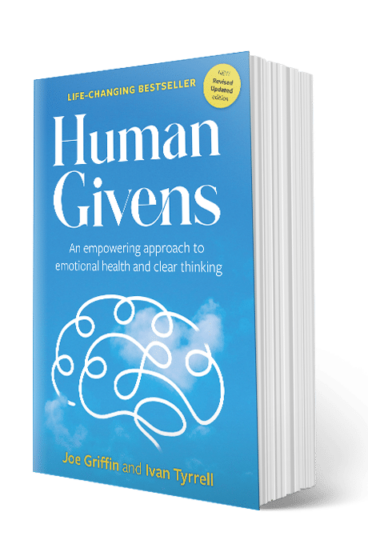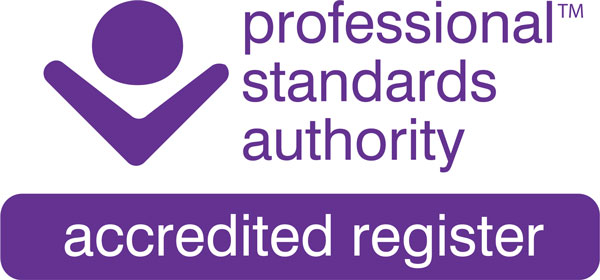History of the human givens approach
Increasingly, in the UK and overseas, the core set of principles that underpin the human givens approach are now recognised for their enormous, wide-reaching potential — not only for reducing emotional distress but also for creating harmony between individuals and within communities, enhancing learning in schools, college and universities and helping all organisations work more effectively.
These principles grew out of the initial curiosity of two psychotherapists, Joe Griffin and Ivan Tyrrell, who were trying to bring greater clarity to understandings about the causes of depression, anxiety, psychosis, trauma and addiction, as well as make help for these conditions more reliably effective.
Griffin and Tyrrell were aware that mature sciences like chemistry, physics and engineering are built on a broad common ground of understanding. Despite the wealth of psychological and neuroscientific knowledge available to us, this was lacking in psychotherapy.
Drawing in expertise from other like-minded professionals, they formed, in 1992, the European Therapy Studies Institute (ETSI), with the aim of discovering why some psychotherapy approaches appeared to work more effectively than others. ETSI quickly gained several hundred members from a wide variety of professions, whose support enabled the publishing of a journal, called The Therapist. Fellow psychotherapist Pat Williams joined at this point, contributing a column for the journal, which she continued to write for 25 years.
To tackle the efficacy question, a team combed through the scientific research showing what was most helpful and also incorporated what they could glean from the therapeutic wisdom of other cultures and times. Then they took what was left, stepped back and set about understanding how it matched up with the emerging findings from neuroscience, always asking “why does this work?”
By looking at the fundamental principles of what it means to be human, Griffin and Tyrrell went on to develop a simple, robust, scientifically up-to-date biopsychosocial model of healthy human functioning: a shared language and a practical framework upon which to build an effective, integrative approach to emotional health which truly understands us as human beings with human needs. It was a new synthesis of everything that can reliably be said to help human beings function well and be happy, incorporating important new insights from Joe Griffin on why we dream.
In 1996, Ivan Tyrrell founded the peripatetic MindFields College, in order to educate people across the UK and Ireland in the practical application of this rapidly developing psychological knowledge and the most effective therapeutic techniques for treating a wide range of emotional distress and behavioural problems. (Well over 175,000 people attended MindFields courses during its years of operation.)
By 1997 the term ‘human givens’ was being used so often that it stuck and the first monograph on the subject was published. Denise Winn joined as editor of The Therapist and, a few years afterwards, its name was changed to Human Givens to reflect its wider appeal, growing from strength to strength. Alongside Ivan Tyrrell, as editorial director, Denise continued to expand and edit the journal for 26 years.
Many professionals found that, when they combined the insights provided by the human givens framework with the effective psychotherapeutic techniques taught by MindFields College, their work became so much more effective and rewarding that they were keen to study the approach in more depth. So, as a direct result of this demand, the Human Givens Diploma Course was developed, with the first course running in April 2000.
The approach continued to grow organically. It was further refined as new insights and research findings came to light, and knowledge and feedback were gleaned from the wide range of psychologists, teachers, counsellors, psychotherapists, nurses, social workers and others who completed the diploma.
Indeed, one of the fundamental principles of the HG approach has always been that we should never stop learning; new knowledge, insights and skills (when backed up with genuine scientific understanding) are incorporated into the fundamental framework of the human givens whenever possible, to increase its effectiveness. Thus the human givens approach to therapy is an open and evolving concept – which enables us to see more clearly what really works and why, and makes therapists and counsellors more effective at relieving distress.
In 2001, the Human Givens Institute (HGI) was established as the professional body for human givens therapists and as a means for those using the approach to keep in touch with one another and share ideas. Through its website, it also aims to provide a useful resource for members of the general public looking for good quality information about the causes of many forms of emotional distress and behavioural problems, as well as advice about what to look for when searching for an effective therapist/counsellor. The website also provides many free articles about how the HG approach is being used across a range of settings, and an online register of human givens therapists currently in private practice.
 In 2003 the seminal book about the approach: Human Givens: The new approach to emotional health and clear thinking was published in hardback to great acclaim – and demand was so great it was republished almost immediately. A revised paperback version was published in 2013 and many reprints continued to follow. The latest updated edition appeared in 2024, with the new title Human Givens: An empowering approach to emotional health and clear thinking.
In 2003 the seminal book about the approach: Human Givens: The new approach to emotional health and clear thinking was published in hardback to great acclaim – and demand was so great it was republished almost immediately. A revised paperback version was published in 2013 and many reprints continued to follow. The latest updated edition appeared in 2024, with the new title Human Givens: An empowering approach to emotional health and clear thinking.
In 2004, Dreaming Reality: How dreaming keeps us sane, or can drive us mad was published (with a paperback version in 2006). The book was revised and republished in 2014, under the title Why we dream: the definitive answer.
Also in 2004, a series of self-help books, Essential help in troubled times – the human givens approach, was launched to introduce new knowledge (about lifting of depression, curing addictions, liberating yourself from pain, releasing yourself from anger and mastering anxiety) to the general public. Highly practical and written without jargon, they appeal to any who want to help themselves or others. A range of helpful CDs and MP3s have also been produced for professionals and the general public.
In the same year, 2004, the Human Givens Foundation was established as a registered charity to promote research and public education into the ‘givens’ of human nature and their application in the treatment and care of those suffering from mental illness. One of the main aspects of the charity’s work from the outset was to support research into the effectiveness of the human givens approach to therapy, and, not long after it was formed, supported the work carried out through the Human Givens Practice Research Network, set up and run by HG practitioner Bill Andrews to build an evidence base for the human givens method. All trainees and fully qualified HG practitioners are actively encouraged to contribute outcome-measure data collected from patients, using Pragmatic Tracker, a tracking tool which Bill went on to co-found. Results to date indicate that human givens therapy is highly cost-effective.1,2,3,4,5,6
In 2007, An Idea in Practice: using the human givens approach was published to celebrate the ten years since the human givens’ organising idea had first been published. It contains a wealth of articles and case histories showing how the approach has been used by a wide range of professionals to improve, often dramatically, outcomes in their numerous, different fields. In 2008 the book was short-listed for Mind’s Book of the Year Award.
The final book on which Joe Griffin and Ivan Tyrrell collaborated was Godhead: The brain’s big bang, (published in 2011) in which they explored science and mysticism as two essential aspects of human functioning and how both are linked to the human vulnerability to mental illness.
In 2008, with a view to potential future regulation in the field of psychotherapy and counselling, Nottingham Trent University and MindFields College (the forerunner to Human Givens College) launched a collaborative MA Programme in Human Givens Psychotherapy, with those completing the full MA programme contributing to further research into the approach. (This collaboration came to an end in 2010.)
Gareth Hughes became Director of Education in 2020 and the college has a superb team of tutors in place, who are continuing and expanding the HG teaching. We are also actively seeking a new university partner that shares our values as we continue our development and growth, and individuals who can help the Human Givens Foundation grow to further its aims too.
If you are interested in keeping up to date with information about the human givens approach and how it is being used, do please sign up to receive by email our free Human Givens Newsletter. You might even like to consider becoming a member of the HGI, which gives you additional benefits.
- Project100 study: https://ptsdresolution.org/pdf/Project-100-initial-report-Final-30-05-2023.pdf
- Burdett, H and Greenberg, N (2019). Service evaluation of a human givens therapy service for veterans. Occupational Medicine, 69, 8–9, 586–92. https://doi.org/10.1093/occmed/kqz045.
- Tasaroucha, A, Kingston, P, Stewart, T, Walton, I and Corp, N (2012). Assessing the effectiveness of the ‘human givens’ approach in treating depression: a quasi experimental study in primary care. Mental Health Review Journal, https://www.emeraldinsight.com/doi/abs/10.1108/13619321211270416
- Andrews, W and Miller, S (2012). The development of a practice research network and its use in the evaluation of the ‘rewind’ treatment of psychological trauma in different settings. International Handbook of Workplace Trauma Support, 213–226. https://doi.org/10.1002/9781119943242.ch14
- Andrews, W P Minami, T, Wislocki, A P, Short, F and Chow, D (2013). A five‐year evaluation of the human givens therapy using a practice research network. Mental Health Review Journal, 18, 3, 165–76. https://www.emerald.com/insight/content/doi/10.1108/mhrj-04-2013-0011/full/html
- Andrews, W, Twigg, E, Minami, T and Johnson, G. (2011). Piloting a practice research network: A 12-month evaluation of the human givens approach in primary care at a general medical practice.’ Psychology and Psychotherapy: Theory, Research and Practice. doi:10.1111/j.2044-8341.2010.02004

